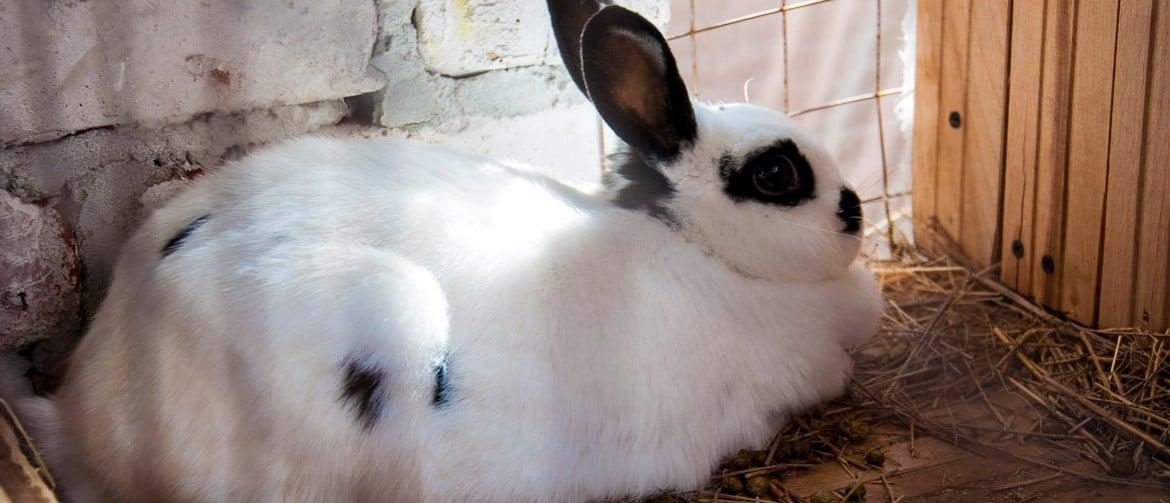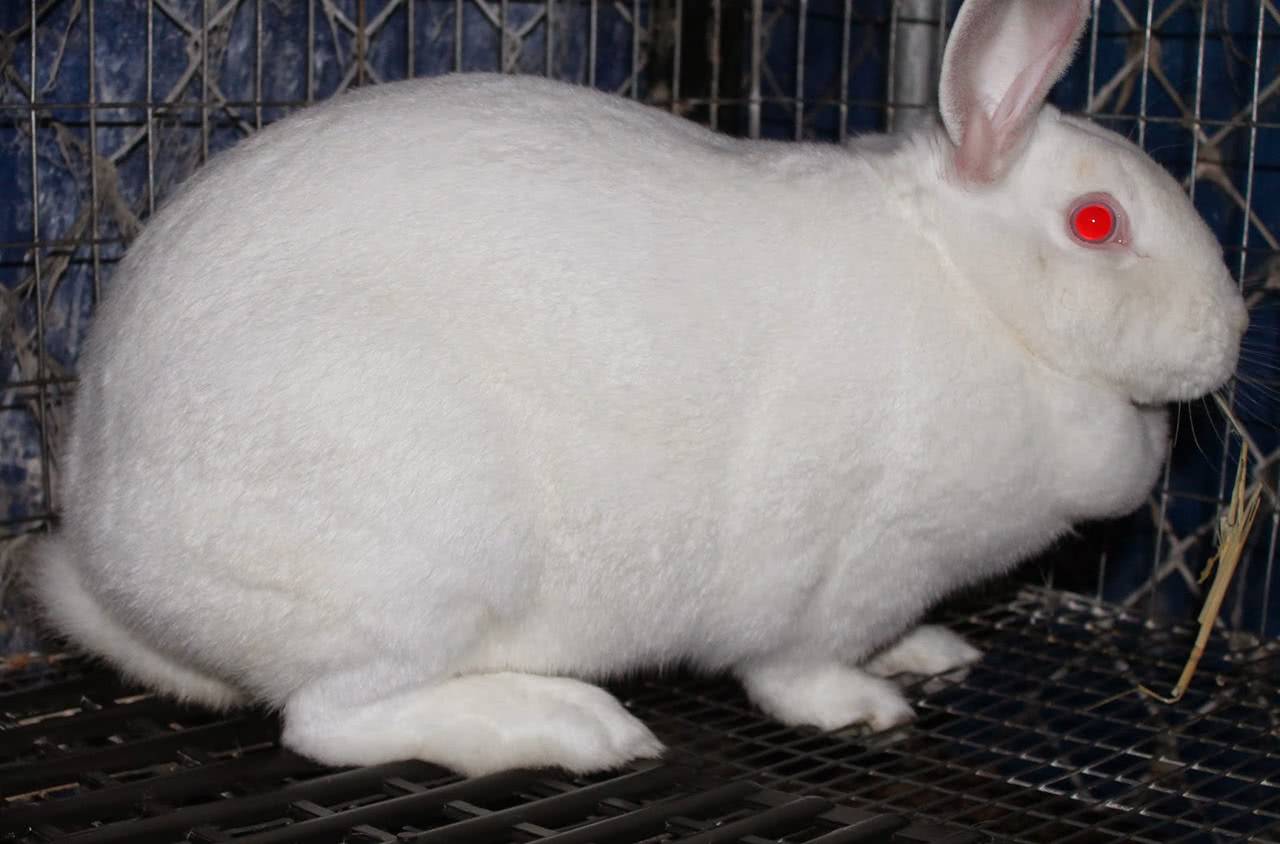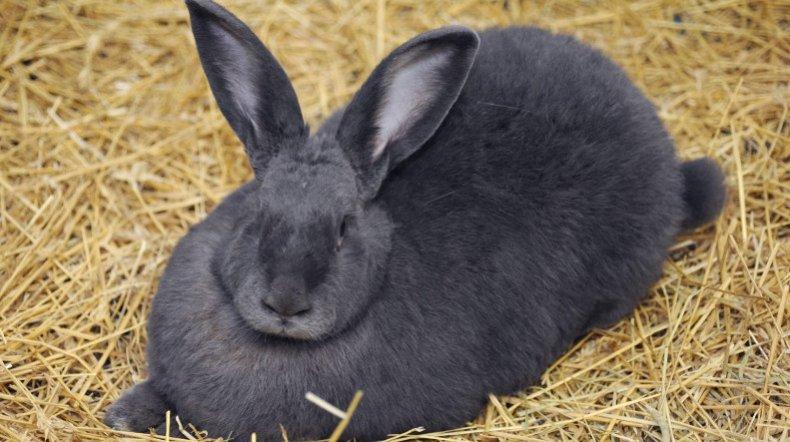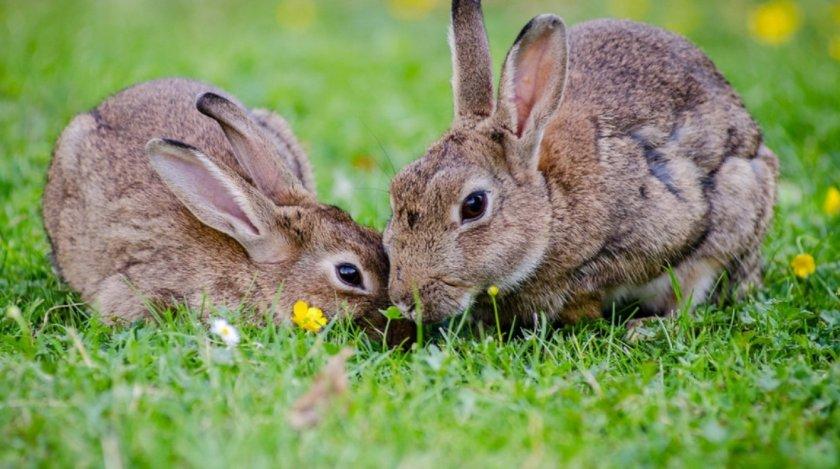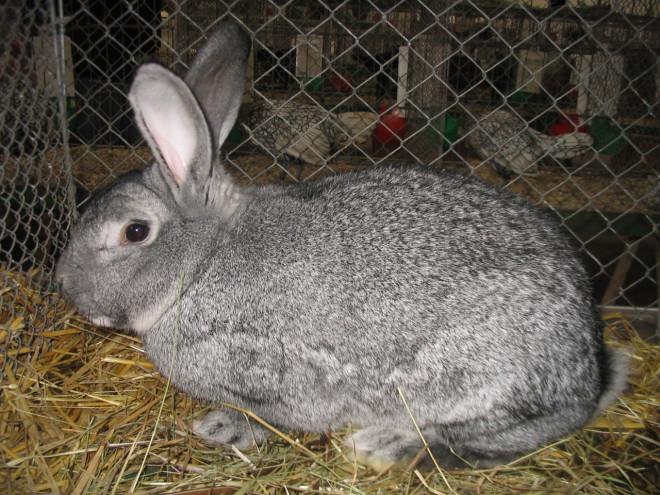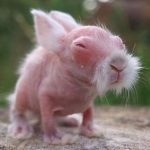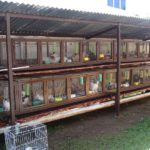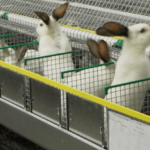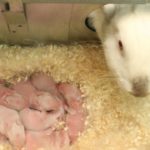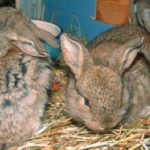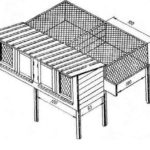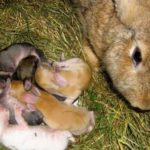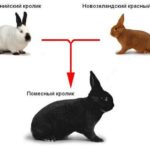In rabbit breeding, breeding is an important stage in their life. A novice breeder should know all the nuances of this process, including how long pregnancy lasts in rabbits. After the animals mate, the female is fertilized. At this time, proper care of the individual and proper nutrition are important. With proper care, you can get full-fledged, healthy offspring.
How long do rabbits bear baby rabbits?
A pregnant female stays for 28-35 days.The duration of gestation depends on several factors:
- Number of embryos. The more babies there are in the womb, the more difficult it is for them to develop. Therefore, the birth occurs earlier than expected.
- Age of the woman in labor. For the first time after mating, the female gives birth to a small number of offspring. Productivity also decreases in aging individuals. Young animals have a larger number of rabbits, and accordingly, the period of gestation is reduced.
- Breed of rabbits. In breeds of small rodents, breeding occurs faster. The larger the individual, the longer the gestation period for the rabbits.
- Mom's health. For the entire period of pregnancy, the rabbit needs special care, living conditions and good nutrition. Compliance with such measures contributes to the normal course of pregnancy and the birth of healthy babies.
In one litter, a female is capable of producing from 4 to 12 cubs. On average, large breed rabbits give birth to their offspring at 30-34 days. For example, representatives of the white giant, Californian, and Soviet chinchilla breeds. Rabbits are born with an average weight of 70-80 grams.
How to determine the pregnancy of a female rabbit?
After mating, pregnancy is determined on the 14-15th day. To do this, a visual inspection is carried out and the palpation method is used.
Physiological changes
You can check the success of mating by palpating the female’s abdomen. It is advisable to entrust these manipulations to an experienced veterinarian. To carry out palpation, the rabbit is taken by the scruff and ears and held with the other hand. The thumb is placed on one side of the animal, the remaining fingers on the opposite side.If pregnancy is present, embryos are felt in the female's abdomen. For comparison, an inexperienced rabbit breeder can palpate the belly of an individual that is not expecting offspring.
You can determine the success of a rabbit’s fertilization by external signs, namely a rounded belly. A noticeable change occurs 7 days after mating. Although such a sign is not always visually determined. The longer the period, the larger the belly grows and becomes more noticeable.
Before mating, the female rabbit is weighed. The weight is then checked for two weeks after mating. If mating is successful, the female gains weight from 200 to 400 grams within two weeks and looks larger than usual.
Changes in behavior
There are other signs of pregnancy in an eared animal that are related to behavior. After fertilization, the individual avoids contact with the male. The farmer can find out the position of the female rabbit by placing a rabbit next to her 7-9 days after mating. A pregnant female will begin to show aggression towards him, attack and even bite.
Some individuals become timid and begin to drag dry grass into the house. A female rabbit makes a nest. She tears out the fluff on her chest and covers the bottom of the queen cell for future offspring.
A female rabbit who bears offspring begins to consume more water and food. She may throw food out of the feeder, signaling that it is time for her to change her diet.
How to care for a pregnant rabbit?
To maintain the health of the rabbit and her future offspring, it is necessary to provide adequate care, balanced nutrition, and a favorable environment.
Feeding
Immediately after mating, the female is provided with high-quality nutrition.A balanced diet guarantees the full development of fruits and the appearance of healthy babies. The diet includes various high quality feeds. If the rabbit has been eating good food, it is not advisable to change the diet; the breeder only increases the number of servings.
Experienced breeders recommend giving the pregnant female fresh hay in the morning. After lunch, the menu includes concentrated food. Be sure to include vitamins, minerals, beneficial micro- and macroelements in the diet. Calcium is given in the form of chalk and bone meal.
The food must include the following components:
- compound feed, oats;
- high protein foods;
- fresh, firm vegetables;
- fish fat;
- minerals.
Important! If there is a lack of salt, the female rabbit is able to eat the offspring. Therefore, the feeder must contain mineral supplements.
Care
As the birth approaches, the breeder prepares the queen cell - the place where the female will build a nest. Usually it is built in the form of a box into which the animal can be safely placed. The container is made with sides so that the kids do not fall out of it. The bottom of the queen cell is covered with dry grass, newspaper, and sawdust.
The house should always be clean and comfortable for the animal. For the cage, choose a quiet place without extraneous noise. It is advisable to darken the place where the house is installed, as bright light can frighten a pregnant female.
Problems associated with pregnancy
If proper care is not provided or the rodent is not fed properly, health problems may arise that lead to the death of the offspring. There are a number of problems associated with a rabbit's pregnancy:
- Mastitis occurs when there is a lack of hygiene and cleanliness in the house. Contaminated milk poses a real threat to babies, which can be fatal.If such a danger occurs, you should immediately seek help from a veterinarian.
- Toxicosis - intoxication of the body is not typical for all rabbit breeds. It occurs due to a lack of nutrients in the diet. The problem is eliminated by administering a glucose drip to the animal.
- Eating newborn rabbits can be caused by various factors. These include: poor nutrition, lack of salt in the body, malnutrition, stress.
During childbirth, it is important to monitor the condition of the rabbit. If the duration of childbirth exceeds the permissible norms, the help of a veterinarian will be required.
Rabbit breeding is a popular type of business, since breeding eared pets is considered profitable and simple. But here, too, attention is required on the part of the farmer in order to obtain regular, healthy offspring.

